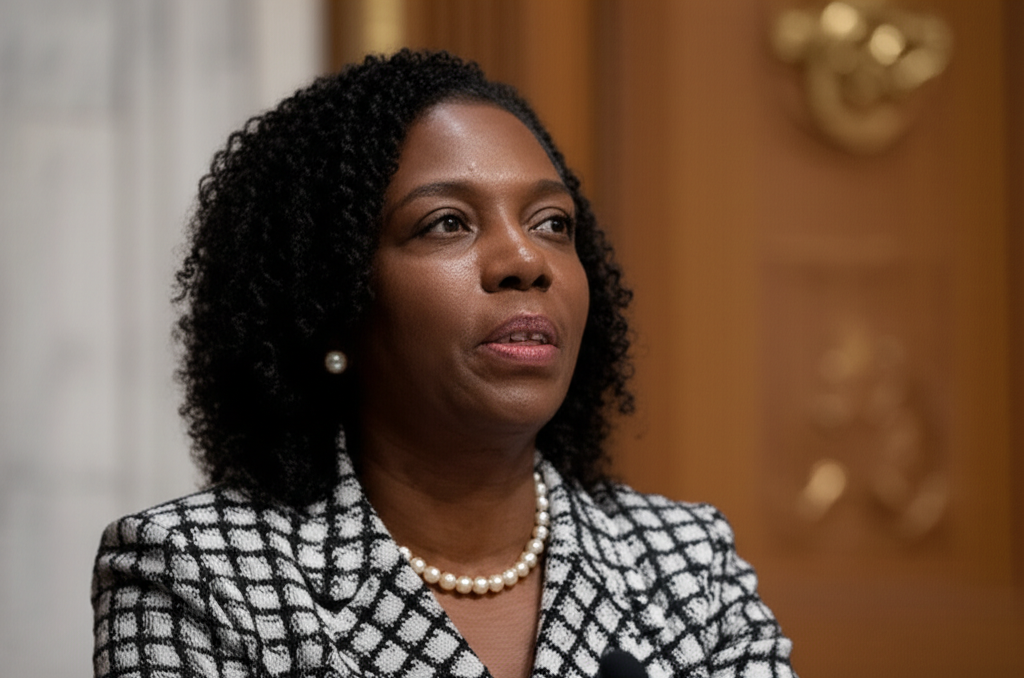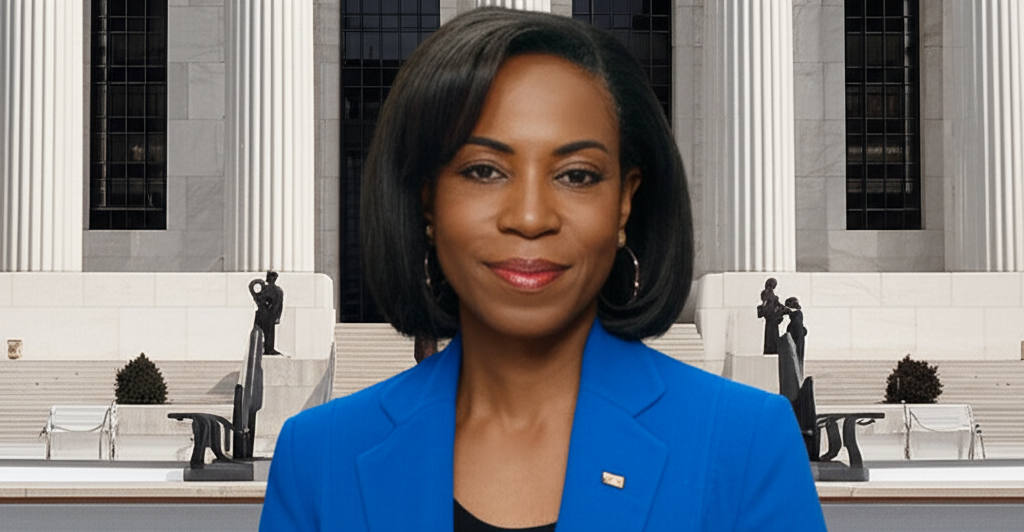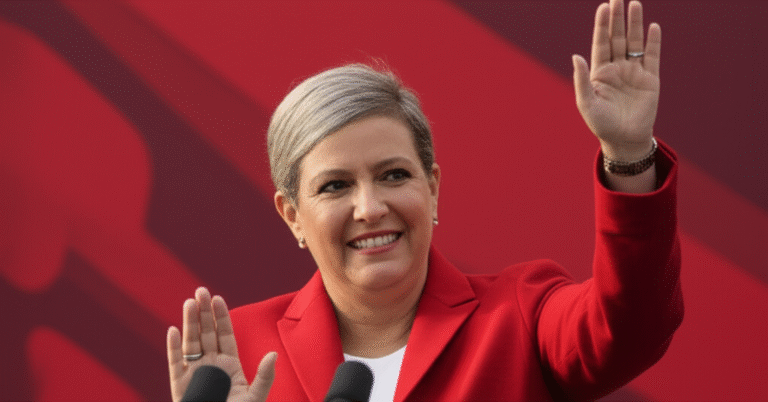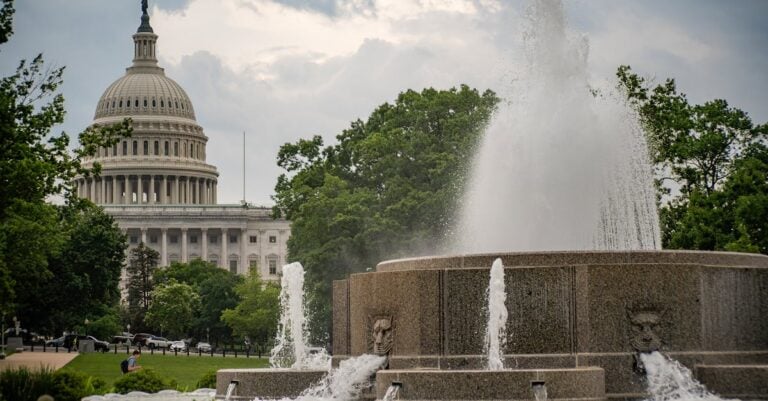
An appeals court has issued a ruling affirming that Federal Reserve Governor Lisa Cook can continue in her current capacity, effectively rejecting the attempts by President Donald Trump to remove her from the influential board. This significant legal development unfolded just ahead of a critical vote concerning interest rates, a decision with wide-ranging implications for the nation’s economic landscape. The judgment from the appeals court represents a notable setback for the Trump administration’s efforts to alter the composition of the Federal Reserve’s leadership before key policy deliberations take place. The outcome means that Governor Cook will retain her seat, at least for the immediate future, allowing her to participate in upcoming economic policy discussions and decisions for the Federal Reserve.

Appeals Court Affirms Cook’s Tenure Ahead of Key Vote
The recent decision by an appeals court definitively states that Lisa Cook is permitted to remain a Federal Reserve governor. This ruling directly counters the initiatives put forth by President Donald Trump, who had sought her removal from the esteemed financial institution. The court’s action, announced on Monday, provides a timely resolution to the question of Governor Cook’s tenure as the Federal Reserve board prepares for an upcoming and pivotal vote on interest rates. The court’s judgment highlights the legal process involved in challenging presidential efforts to appoint or remove high-ranking officials within independent agencies such as the Federal Reserve. By allowing Governor Cook to continue in her role, the appeals court has momentarily preserved the existing structure of the Fed’s board of governors, underscoring the legal protections afforded to such positions. This ruling ensures continuity for the time being, preventing an immediate vacancy or change in leadership ahead of crucial economic policy discussions.
Trump Administration’s Legal Setback
President Donald Trump’s administration has faced a clear rebuff from the appeals court regarding its attempts to remove Governor Cook. These efforts, aimed at unseating her, have proven unsuccessful in the appellate judicial system. The court meticulously reviewed the arguments presented by both sides before arriving at its conclusion. This thorough examination led to the determination that the efforts to remove her were not, at this stage, legally sufficient to warrant her immediate departure from the Federal Reserve board. The appellate panel’s decision is a critical juncture in the ongoing legal disputes surrounding appointments and removals within the nation’s central banking system. It reinforces established procedures and the judiciary’s role in overseeing executive actions related to independent governmental bodies. The explicit rejection of the administration’s bid marks a significant development in the unfolding legal challenge to Governor Cook’s position and the broader authority over Federal Reserve appointments.
Anticipated Supreme Court Appeal
In response to this setback at the appeals court level, the Trump administration is widely expected to escalate its legal challenge by taking the matter to the Supreme Court. This move represents a “last-ditch bid” to achieve its objective of removing Federal Reserve Governor Lisa Cook before the Federal Reserve’s important meeting where interest rate decisions are slated to be made. The administration’s strategic shift to the highest court indicates the high stakes involved and its determination to pursue all available legal avenues. This impending appeal to the Supreme Court underscores the persistent nature of the legal battle and suggests that the issue of Governor Cook’s position at the Federal Reserve remains contentious and unresolved in the long term. Such an appeal would require the Supreme Court to consider the arguments previously presented and to determine whether the appeals court’s ruling should stand or be overturned, prolonging the legal uncertainty.
Governor Cook’s Separate Lawsuit Continues
While the appeals court has ruled in favor of Lisa Cook remaining a Federal Reserve governor for the time being, this is not the sole legal front concerning her position. Governor Cook herself has initiated a separate lawsuit, the explicit aim of which is to permanently block any attempts to fire her. This personal legal action is distinct from the appeals court’s ruling on the Trump administration’s efforts, and it continues its progression through the judicial system. The existence of Governor Cook’s lawsuit indicates a proactive measure on her part to secure her long-term tenure and ensure stability in her role within the Federal Reserve. The judicial process for such a lawsuit involves various stages, all of which contribute to the time it takes for a definitive resolution to emerge. The ongoing nature of this lawsuit means that the question of her permanent status is still very much an open legal matter, running parallel to the administration’s efforts.
Legal Landscape Surrounding Federal Reserve Governor Lisa Cook
The situation involving Federal Reserve Governor Lisa Cook has been characterized by a series of legal and executive actions. President Donald Trump initiated efforts to remove her from her position on the Federal Reserve board. These attempts led to a legal challenge that recently culminated in an appeals court ruling. The appeals court specifically rejected the Trump administration’s bid to unseat Governor Cook, thereby allowing her to remain in her role. This ruling came at a particularly sensitive time, just prior to a key vote on interest rates by the Federal Reserve. The context of these events underscores the importance of the Federal Reserve’s composition and its role in monetary policy. The administration’s move to challenge Governor Cook’s tenure and the subsequent legal proceedings have drawn attention to the independence of the Federal Reserve and the mechanisms by which its governors are appointed and potentially removed.

Implications for the Federal Reserve
For the Federal Reserve, having a stable and predictable board is often seen as vital for maintaining public confidence in its monetary policy decisions, particularly during periods of economic uncertainty or significant policy adjustments. The appeals court ruling contributes to this stability by affirming Governor Cook’s right to continue serving for now. However, the anticipated appeal to the Supreme Court by the Trump administration and Governor Cook’s ongoing lawsuit seeking permanent protection mean that the long-term certainty of her position remains under legal scrutiny. The institution must navigate these legal complexities while also fulfilling its mandate to manage monetary policy, including the critical upcoming vote on interest rates. The interplay of these legal challenges and the need for consistent policy-making highlights the unique pressures on the Federal Reserve and its governors.
- An appeals court ruled that Lisa Cook can remain a Federal Reserve governor.
- The court’s decision rebuffed President Donald Trump’s efforts to remove her.
- This ruling occurred just ahead of a crucial vote on interest rates by the Federal Reserve.
- The Trump administration plans to appeal this decision to the Supreme Court as a “last-ditch bid.”
- Governor Cook’s separate lawsuit to permanently block her firing is still proceeding through the courts.
What’s Next in the Legal Battle

Looking ahead, the legal battle concerning Federal Reserve Governor Lisa Cook’s position is far from concluded, despite the appeals court’s recent ruling. The Trump administration is expected to swiftly move to the Supreme Court. This action represents their “last-ditch bid” to remove Governor Cook before the Federal Reserve convenes for its crucial vote on interest rates. Concurrently, Governor Cook’s own lawsuit, which aims to permanently block any attempt to fire her, will continue its trajectory through the courts. This lawsuit, distinct yet related to the appeals process, seeks a more definitive and long-term resolution regarding her tenure. Therefore, while the appeals court has made an important decision, the legal landscape remains dynamic, with significant actions anticipated on both fronts. The ongoing nature of these legal challenges means that the question of Governor Cook’s long-term status at the Federal Reserve will likely remain a subject of legal proceedings for the foreseeable future.
The immediate future will see the Trump administration formalize its appeal to the Supreme Court. This procedural step will initiate a new phase of litigation, potentially bringing the issue to the attention of the highest judicial body in the country. Simultaneously, Governor Cook’s lawsuit seeking permanent protection against firing will continue to progress through the lower courts. This parallel legal track ensures that even as the appeals process unfolds at the highest level, the fundamental question of her employment security is being addressed through a comprehensive legal challenge. Observers will be closely watching both legal avenues for developments, as they will ultimately determine the long-term status of Federal Reserve Governor Lisa Cook. The interplay of these legal actions will define the next chapter in this significant challenge to the leadership of a key economic institution.
For more details, refer to the original report: [Source]






